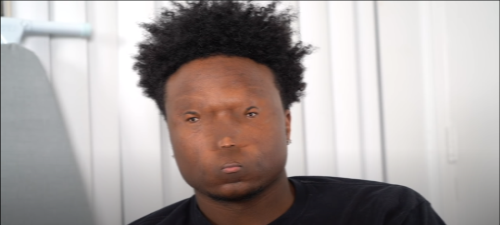Just recipes, no Javashit, no trackers, loads instantly.
Holy shit. This website is great. Thanks.
Does something similar exist in metric? It’s a chore to translate every item.
The search field uses javascript
But not Javashit :p
Lorem ipsum dolor sit amet, consectetur adipiscing elit, sed do eiusmod tempor incididunt ut labore et dolore magna aliqua. Ut enim ad minim veniam, quis nostrud exercitation ullamco laboris nisi ut aliquip ex ea commodo consequat. Duis aute irure dolor in reprehenderit in voluptate velit esse cillum dolore eu fugiat nulla pariatur. Excepteur sint occaecat cupidatat non proident, sunt in culpa qui officia deserunt mollit anim id est laborum.
When I was young my mum bought me a cookbook and once a week, usually Sundays, we would make a recipe or two
This is why it might seem so easy to you, wouldn’t you think?
Well obviously OP can’t go back in time to when they were a child, but there’s nothing to stop them getting a cook book once a week and trying out a recipe or two.
I mean, yeah, obviously. But claiming it’s really easy because you were lucky to have normal parents and have been doing it since you were kid, especially on a question that implies someone didn’t have the luxury, is not helping.
I think the part about knowing how to follow instructions is pretty much true though, at least for me. I only started cooking by myself in my mid-20s. I started by just searching a recipe and adding “simple” in my search query so I get something I can realistically make with what I have in the kitchen/pantry. Then I just follow it to the letter. Through repeated trial and error I eventually learned what could be done faster or easier, what ingredients can be substituted, etc.
But claiming it’s really easy because you were lucky to have normal parents and have been doing it since you were kid, especially on a question that implies someone didn’t have the luxury, is not helping.
I don’t think they did that. The bit about cooking being easy and just a matter of following instructions was a completely separate paragraph to the anecdote about it being so easy they learned it when they were a child. And that was my takeaway, incidentally, not the whole “I started as a kid and now I’m a master chef and it’s all easy” but rather “9 year olds can figure this out, I’m sure an adult will have no problem picking up the basics”. You’re combining two separate things in search of a negative take.
I’m not searching for a negative take, I’m just saying how it looks to me. Not OP, not you, not anyone else, just me personally.
I know, and I’m not saying that’s completely the wrong take, just that it’s almost certainly and pretty obviously (although maybe not immediately) not the one that was intended to be delivered.
It may sound meaningless, but the best way to learn to cook is to cook. Learning by doing, that is the way.
Agreed. You can’t really mess up that badly when cooking. Burnt bits can be scraped off and there’s always a way to fix food when you season too much.
I would slightly disagree. Real bad things can happen while cooking. Kitchen safety should not be taken easy. One thing that comes directly to my mind is deep frying. Any higher amount of hot oil needs to be treated with respect. AND NEVER EVER PUT WATER INTO BURNING OIL. Suffocate it with a pot lid or a fire blanket.
Good point! Adding on to that, NEVER USE DULL KNIVES or catch a falling knife. Generally just be careful around sharp or hot objects
Always put a damp towel underneath a cutting board so it doesn’t move when you’re using it. I credit this in combination with safe knife holding techniques as the reason why my comically clumsy ass hasn’t had to go to the ER to get stitches/reattach digits in the 15 years I’ve been cooking.
A quote I think about is “a falling knife has no handle.”
I’ve never dropped a knife but I’m hoping if I do I’ll be prepared!
When starting to cook on my own, I always found it very stressful, because I felt you had to do so many things in parallel and then you look away for too long at the wrong time and something burns.
What helped me is reading the whole recipe very carefully and then prepare everything before actually starting to cook. Many recipes tell you something like “while x simmers, cut y / prepare z”. That’s fine, when you have developed a feeling for how long things take, but as a beginner, it’s better to do everything sequentially. It takes longer that way, but it makes it much less stressful and overwhelming.
This is great advice!
Start small - like a fried egg. All you need is a pan, a spatula, some butter/oil and an egg itself.
Then upgrade to an omlette.
Then omlette du fromage.
Then a pirate’s eye (egg in a slice of bread/bagel). Add some dill.
Boil some potatoes.
Mash some boiled potatoes.
Rice is simple - just boil it for some time.
Essentially - you’ll learn by doing. Just don’t start with making your own bread and you’ll be fine.
That’s all you can say!
Also it’s bad french, it’s ‘omelette au fromage’
Lots of people are recommending YouTube for learning recipes. That’s great advice, but carefully vet what channels you view. Lot’s of creators are interested in views, not education. Those recipes often gloss over important steps or are altogether fake. Avoid big personalities who make gimmicky dishes with exotic ingredients.
I can recommend Chef John, Kenji Lopez-Alt, Ethan Chlebowski, and Helen Rennie.
Don’t forget the godfather of educational cooking shows - Alton Brown
Brian Lagerstrom is great too. I combined parts of his and chef John’s chili technique to win a local chili cook off!
if you’re looking to get into BBQ, then Chef Tom from All Things BBQ (atbbq) and Bradly Robinson (Chudds BBQ) are some of the finest BBQ tutorials on youtube.
I second chef John. I love Kenji too, but his videos are not polished enough to be good for beginners. John provides all the detail you need in an easy to follow fashion which is great for beginners. His channel is called Food wishes for anyone looking for him since chef John might be too vague.
Not familiar with the others but if they’re mentioned in the same breath as them then I’ll definitely want to check them out!
YouTube
Yeah YouTube is a pretty good place to learn how to cook, I’ve learnt a lot from Binging with Babish.
Instagram also a great source for good food with simple recipes.
In addition to what others have said already: make peace with the fact that you WILL make mistakes, that the first few tries WILL look weird and that you WILL forget an allegedly important step. This is just part of the learning courve and happened to literally everyone who ever learned to make meals in the history of cooking, so do not compare the first ever flattened sushi roll you made with something a master chef with 30+ years of experience is able to do or the heavily photoshopped pictures on food blogs.
You will learn from those mistakes, and you will gain more experience over time. Small progress is still progress.
Also, it can help to only make PART of a recipe yourself when you’re still a bit unsure how all of it works, like for example buying premade pizza dough and only add the sauce and toppings yourself, or buying premade pie dough and only make the filling. One step at a time.
You start by learning how to pour cereal
keep a fire extinguisher handy though
Everyone has overcooked their fruit loops at least once, it’s a rite of passage
Didn’t bother learning to cook until my mid 20s. You will be a disaster chef before your a master chef but sick with it and always have cereal on standby!
Start out with the basics: if you like pasta, try a basic tomato sauce recipe. If you like eggs, try an omelette with some veg. Figure out what you like and use that to keep you interested and growing your skills.
You will learn as you go on how to prepare/cut up different vegetables. YouTube is a great resource.
The more you do, the more confident you will become. Watching YouTube videos on cooking is no substitute for time in the kitchen cooking though!
You will cremate food, undercook food, over season, under season, ruin pans, smash dishes, have food weld itself into oven trays, laugh, and cry - and you’ll be all the better cook for it.
Good luck!
have cereal on standby!
And the number of a reliable pizza joint. You get tired of cereal.
Have three different cereals in the pantry. Variety is the spice of life.
We used Hello Fresh. Both my partner and I had basic cooking skills, but were not very good cooks. He was also a very picky eater. Hello Fresh reduced the overwhelming amount of recipes in the world down to a more reasonable number to choose from. As we kept going, we started to see the same techniques, like reduction sauces, happen in new configurations and we started to understand how they work, not just follow the instructions. It also helped my partner overcome a lot of his pickiness by being in control of what recipes we had each week, allowing him to explore new ingredients when he felt comfortable.
While maybe not super cost friendly, I second the meal box angle. I wasn’t bad at cooking, but was definitely super slow with knife skills, not comfortable with some stovetop methods of cooking, etc. We used Hello fresh and Plated (before they went out of business), and that really springboarded us into feeling like we could cook. Haven’t ordered any meal boxes in like 5 years now, and make homemade dinners 4+ times a week.
Agree that meal boxes are a good training step. We started using blue apron and after we got the hang of things, realized how much cheaper it would be to buy the ingredients on our own. The bottles of sauces can be pricey up front, but once you have a collection of them, cooking is easier and cheaper. Also, people are really impressed if you can impromptu make something without having to go out shopping.
I felt like a true adult when I decided to make hummus one day and just happened to have everything for it.
I started with one recipe: split pea soup. I got this recipe from a coworker, followed the instructions exactly and started with a success. This made me want to try other things, and I got turned onto Good Eats with Alton Brown, easily the most entertaining and informative cooking show.
Then I just started collecting and trying recipes. I eventually got enough experience to try modifying recipes and toying around with ideas.
Especially at the start, recipes are your friend. Try a broad array of them, follow them exactly, and get the experience. Also, use tools. Yes, people can punch a steak to see if it’s about done, but that will never beat a thermometer.
If you’re into baking, avoid recipes that don’t use weight as a measure of ingredients. Those recipes get different results every time.
These are the best tips I have for starting out. As you get experience, discard the ones that no longer apply.
Youtube.
Start with the suoer basics. Such as: how to boil rice, how to boil pasta, or something like that.
Boiling is the simplest. With pasta you can grab a bit and just taste it. If its still solid on the inside, its not done yet.
But read the instructions on the package. Its usually pretty accurate.
When youve nailed one you move on to make something else. Like… frying an egg etc
Remember when cooking… you almost NEVER turn the heat all the way up.
My stove only goes up to 3. So i keep it around 1.5 or 2. If i set it to 3, the food will get burnt on the outside but still raw on the inside. (This is ok for steaks but not much else)
Practice! Dont give up. Just because you screwed up cooking some chicken once, soesnt mean you cant learn it. Consider what went wrong, try to prevent that from happening again.
When things are just boiling or slowly frying, instead of staring into the wall or your phone, clean up stuff. This makes it more managable. A dirty kitchen is not a good idea.
Also when it comes to salt… too much salt means you cant eat it. Too little salt? Just add more. So, when in doubt, add little to no salt. You can always taste it, then add more.
With pasta you can grab a bit and just taste it. If its still solid on the inside, its not done yet.
/Just over the hill many Italian people flail their arms wildly after hearing this.
Pasta should have just a little bite, just a little hardness on the inside, to be the perfect al dente. And if you’re cooking it again (eg a pasta bake) then you should boil it even less or not at all (I don’t know of anyone who boils lasagne sheets).
But at the end of the day most of what you do with food won’t ruin it completely, and much of it comes down to personal preference. The secret is to taste everything (except raw meat, of course) - if you’re adding something, taste or smell the dish then taste/smell the thing you’re adding to help guess how much you should add, then taste again after adding and stirring. If you cook food to your own taste then you’ll pretty much always enjoy it.
Nobody boils lasagna sheet What an idea… And yes i can see me and others on the Hills with guns aiming at overcooked pasta
No matter how you learn, remember that you will mess up a lot and don’t let that discourage you. Just try to learn from it and remember it for next time.
Meal kit delivery services are awesome, in my opinion. They send you the ingredients for like 3 meals every week. For me personally, the worst part about trying to cook was always looking at a cookbook and realizing you don’t have all the ingredients. So this takes the shopping out of the equation, which just makes it super simple. I’ve talked to a few people that don’t like them, so they’re not for everyone.


















